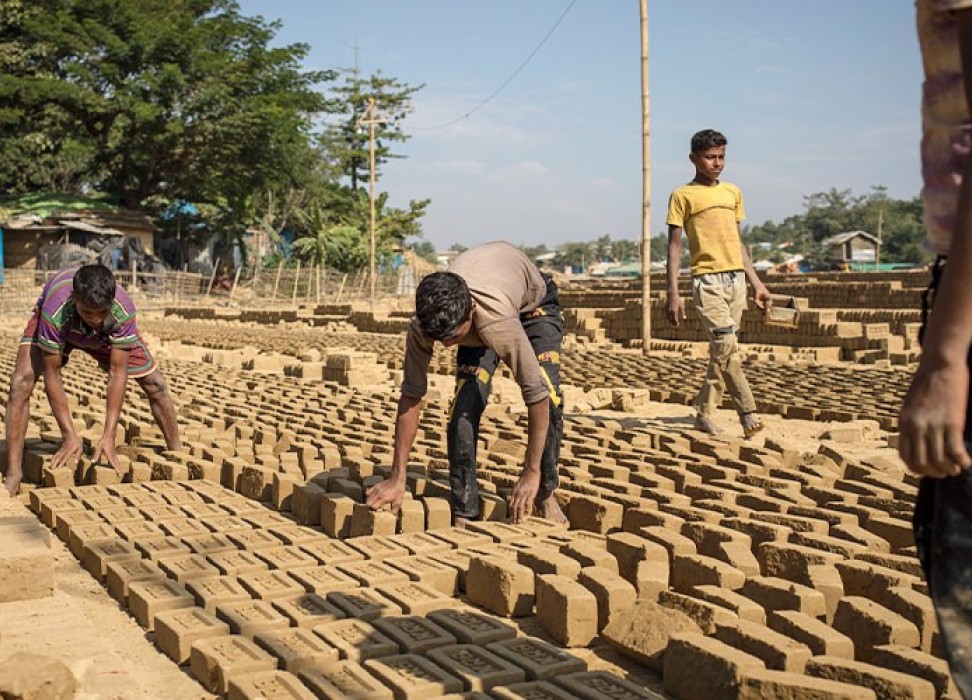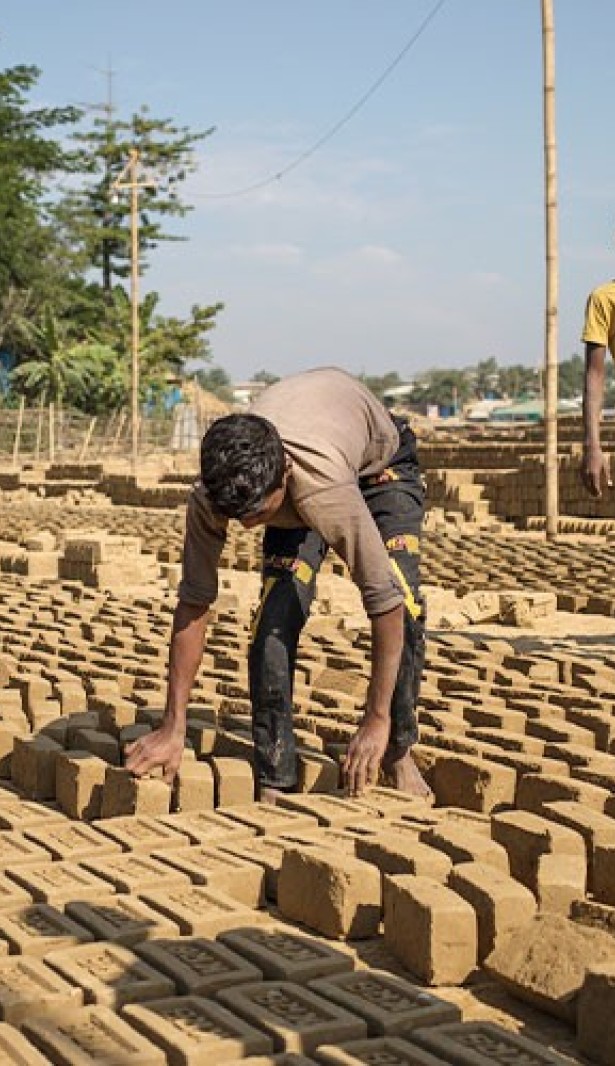Business after conflict: respecting human rights to help sustain peace
19 December 2019

In countries undergoing conflict, or which have endured conflict and where stability remains fragile, the risk of severe human rights abuses is typically significantly higher than in more peaceful contexts.
“How business enterprises operate in a conflict and post-conflict context will affect the dynamics that enable or undermine sustainable peace and respect for human rights. However, the role of business in conflict prevention and peacebuilding programmes, and in particular the contribution that effective management of business-related human rights impacts can play, has largely been overlooked,” said Anita Ramasastry from the UN Working Group on Business and Human Rights.
“For countries emerging from conflict, doing business in a way that treats people with dignity and avoids harm is critical. Companies must meet their responsibility to respect human rights. States must protect human rights, including through effective regulation, policies and support. Investors also have a key role to play to incentivize responsible business,” she added.
Ms. Ramasastry spoke at a panel convened by the UN Working Group at the recent UN Forum on Business and Human Rights in Geneva. The panel focused on post-conflict situations and lessons learned on the connections between conflict prevention, peacebuilding and business activity* in line with international human rights standards.
Private sector development: business as a catalyst for stability and peace
Private sector development can serve as a catalyst for stability and peace, if done in a way that is sensitive to local realities, according to Annelies Van den Berg from the Ministry of Foreign Affairs of The Netherlands.
She explained how the Dutch Government developed guidelines for conflict-sensitive private sector development as a matter of ‘clear urgency’ following its own experience in Ethiopia. Between 2015 and 2017, several foreign-owned flower farms in the Amhara region were burned down and damaged during political violence, she told. Many of those businesses had received funding from the Dutch Government as part of its private sector development programme.
It later became apparent that in many cases, historical land user rights had not been taken into account by the businesses, she said. Van den Berg explained further that the protesters were dissatisfied with government policies, and the Dutch companies had been seen as supportive of the government.
A multi-step ‘fragility lens’ has since been developed by the Dutch government which requires business to ensure conflict and country analysis, analyse lessons from the past, strengthen communication with local communities, avoid contributing to human rights abuse and guarantee proper monitoring and evaluation.
Speaking from the experience of the Swiss Government, Frederic Chenais from the Federal Department of Foreign Affairs, reiterated that the role of businesses in good governance, and thereby their contribution to peaceful, just and inclusive societies – in line with Goal 16 of the 2030 Sustainable Development Agenda – and respect for human rights, cannot be underestimated.
He explained that responsible business in a fragile setting is about translating the UN Guiding Principles into conflict- and context-sensitive action and undertake “enhanced” human rights due diligence. Through policy documents such as national action plans on business and human rights governments can communicate the expectation that companies undertake enhanced due diligence, he noted. They can also support companies by facilitating multi-stakeholder platforms, such as the Voluntary Principles on Security on Human Rights, to find common solutions to complex challenges such as how to ensure that security management systems respect human rights and fundamental freedoms, he explained further.
Business must be accountable
According to Francis Colee, Head of Programs for the Liberian NGO Green Advocates, it is essential that business in conflict-affected countries is accountable and respects international human rights and humanitarian law standards.
Noting the risk of foreign investment to exacerbate conflict and destabilise peace, he called for business approaches that not only consider profitability but also ensure that people’s rights are respected. That is the only way to ensure both sustainable business and sustainable development, he noted.
The private sector perspective
For Telenor, a global telecommunications company with operations in several countries, including conflict-affected countries such as in Myanmar, the need for human rights due diligence before investing in a conflict-affected country is considered crucial.
Context analysis, working with all ethnic groups, capacity building, and actively engaging with the authorities are important ingredients of this approach.
Transparency is another key element. According to Anita Househam, the Director of Human Rights for Telenor, where business cannot take action, transparency is an enabler for other organisations and parties to address concerns.
The Philippines: prioritising government, community and private sector collaboration
In the Philippines, the UN Development Programme (UNDP) is working on a methodology that brings the State and the private sector closer together.
Chetan Kumar, Team Leader for Peacebuilding and the Prevention of Violent Extremism for UNDP in the Philippines, explained how UNDP has embarked on a two-pronged approach to support the peacebuilding process in the Bangsamoro Autonomous Region that has been afflicted by cycles of violence over land, natural resources, clan rivalries and local politics, and that now is attracting much interest from foreign investors. Firstly, they are working with the community to ensure they have the capacity to negotiate with national and regional governments, as well as with the private sector, in order to prioritise the development of their resources and livelihoods. Secondly, they are working with the private sector to ensure they are engaging in a constructive manner with the communities.
“In the longer term, a genuine partnership between the public and private sectors offers the best way to create sustainable jobs and sustainable communities,” he said.
Business respect for human rights to build sustainable peace
The UN Working Group on Business and Human Rights will incorporate elements of this discussion and a range of other consultations in a report to be presented to the UN General Assembly in October 2020. The report will include recommendations and practical steps that States, companies and investors should take to prevent and address business-related human rights abuse in conflict-affected contexts, and contribute to conflict prevention and sustainable peace.
19 December 2019




